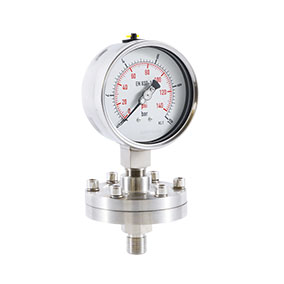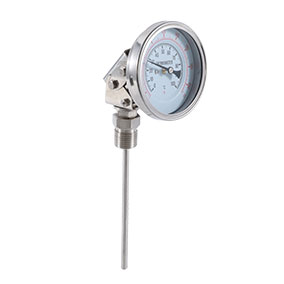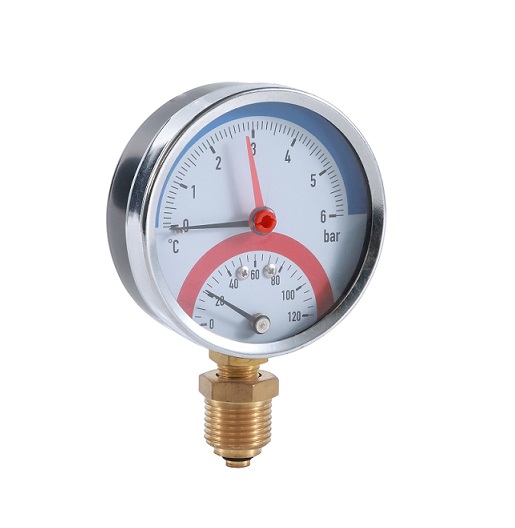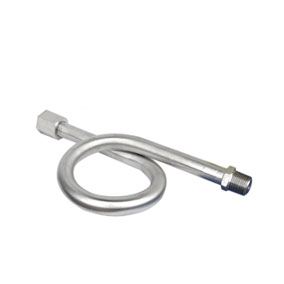Working principle of differential pressure gauge and its importance and advantages in industrial applications
Differential pressure gauge is a common flow measurement instrument, and its working principle is based on the static pressure difference generated when the fluid flows in the pipeline. This article will introduce the working principle of differential pressure gauge and its importance and advantages in industrial applications in detail.
Working principle
Differential pressure gauge uses the static pressure difference formed when the fluid flows in the pipeline to indirectly measure the flow rate. Its basic working principle is as follows:
Application of Bernoulli principle:
According to the Bernoulli equation, when the fluid flows in the pipeline, the static pressure decreases when the flow rate increases, and vice versa. The differential pressure gauge uses this relationship between the kinetic energy of the fluid and the static pressure to measure the flow rate.
Pressure sensor installation:
The differential pressure gauge is usually equipped with two pressure sensors (pressure tapping holes), which are located at two locations in the pipeline or on both sides of the pipeline. These sensors measure the pressure difference ΔP on both sides of the pipeline.
Relationship between pressure difference and flow rate:
The following relationship exists between the pressure difference ΔP and the flow velocity v of the fluid:
[ \Delta P = K \cdot \rho \cdot v^2 ]
Wherein, ΔP is the measured pressure difference, K is a coefficient related to the differential pressure gauge structure, ρ is the density of the fluid, and v is the flow velocity of the fluid.
Flow calculation:
The flow velocity v of the fluid can be calculated by the above formula, and then the flow Q can be calculated based on the pipe cross-sectional area A:
[ Q = A \cdot v ]
In this way, the differential pressure gauge indirectly calculates the flow rate of the fluid by measuring the pressure difference ΔP.
Application and advantages
Differential pressure gauges are widely used in industry to measure the flow of various fluid media, including water, steam, oil and gas. Its main advantages include:
High accuracy: It can provide high measurement accuracy and is suitable for precise flow control and monitoring.
Strong reliability: It has a simple structure, is stable and reliable, and is suitable for long-term operation.
Wide adaptability: It is suitable for various pipeline sizes and fluid conditions, from small pipelines to large industrial pipelines.
The working principle of differential pressure gauges makes them an indispensable and important part of industrial automation and process control. By measuring the pressure difference of fluids in real time, engineers and operators can understand the flow situation in time, optimize processes and protect equipment. With the advancement of technology, differential pressure gauges continue to evolve and improve to meet increasingly complex industrial needs and maintain their important position in the field of flow measurement.
With its simple and effective working principle and wide applicability, differential pressure gauges play a key role in industrial flow measurement and control. By measuring the pressure difference of fluids in pipelines, differential pressure gauges provide important flow data support for industrial production, promoting process stability and efficiency. We professionally manufacture all kinds of differential pressure gauges and double bourdon differential gauge. We would like to establish a long tern business cooperation relationship with customers from all over the world.




